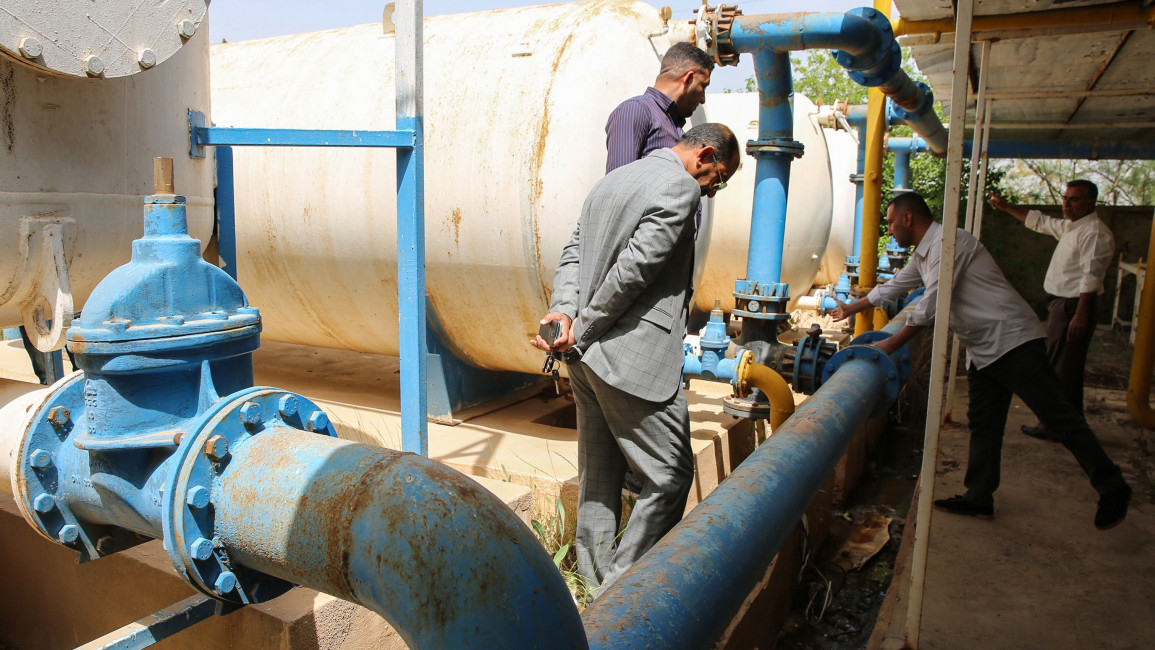West Baghdad without water after 'attack' on power grid
Baghdad's west has been cut off from the city's water network after the Islamic State group attacked an electricity pylon powering a pumping station, authorities and residents said on Saturday.
Unclaimed attacks on Iraq's electricity network have been increasing since the start of summer, at a time when the country is facing severe power shortages.
Authorities normally accuse "terrorists" of being behind the attacks, without identifying a particular group.
But the Iraqi army said in a statement Saturday that IS jihadists were behind an "attack" Friday on a pylon in Tarmiya, north of the capital.
The pylon supplies the Tarmiya pumping station which serves Karkh, the city's west and home to several million people.
Baghdad announced victory over the Islamic State jihadist group in 2017, though troops continue to fight sleeper cells.
Residents of Karkh told AFP on Saturday that water had been cut off since the day before.
"We don't have much water in our tank and we're afraid this cut will be prolonged," a Karkh resident told AFP, declining to be identified.
Many Baghdad residents have installed their own water tanks, as persistent power cuts make Iraq's daily water distribution erratic.
Municipal authorities urged residents to ration tank water usage until the pylon has been repaired and the situation "returns to normal".
Since the start of the summer, authorities have reported the damage or destruction of some 60 electricity pylons across the country, mostly in desert regions.
Prime Minister Mustafa al-Kadhemi met security and intelligence officials on Friday and ordered the establishment of a crisis unit to protect the electricity network.
Oil-rich Iraq produces just 16,000 megawatts of power -
far below the 24,000 megawatts needed, and even further from the expected future needs of a country whose population is set to double by 2050, according to the UN.
The country buys gas and electricity from neighbouring Iran to supply about a third of its power sector, which has been worn down by years of conflict and poor maintenance and is unable to meet the needs of the country's 40 million population.
Last month, areas in the country's south were plunged into darkness for several days after a series of similar attacks.
Around the same time, Iran briefly suspended its gas and electricity exports because of Iraq's failure to pay a $6 billion energy debt.
The failure of Iraq's power system is particularly acute in the baking hot summer months when temperatures shoot past 45 degrees Celsius (113 Fahrenheit).



